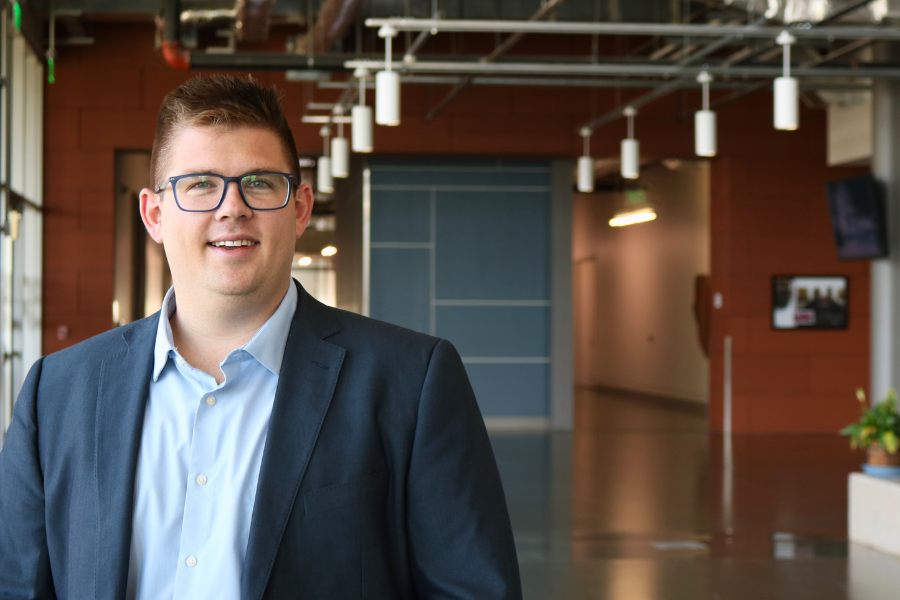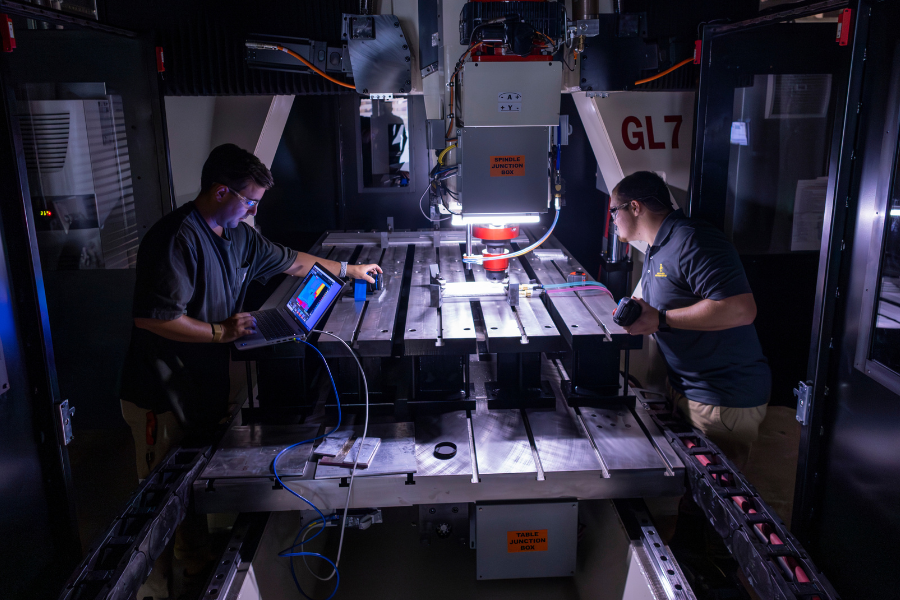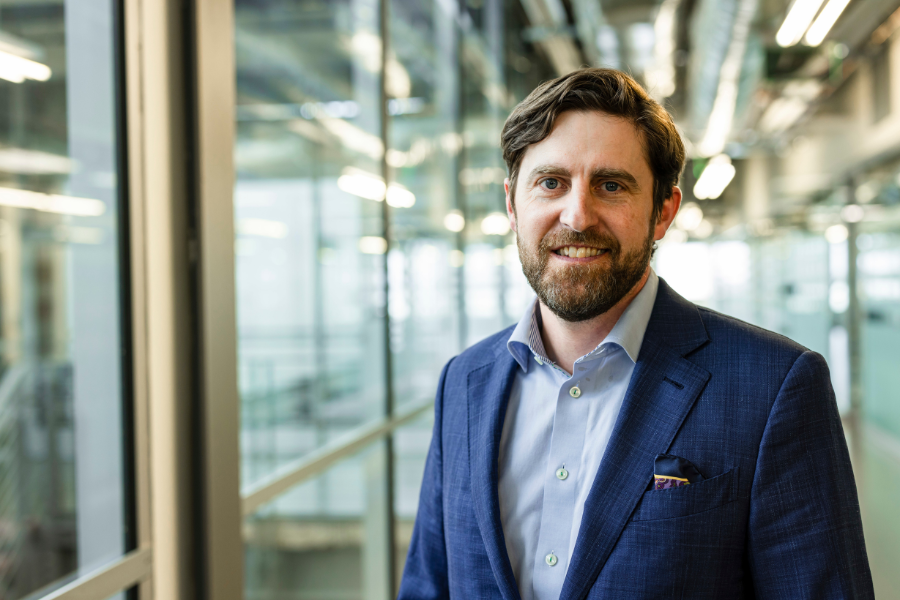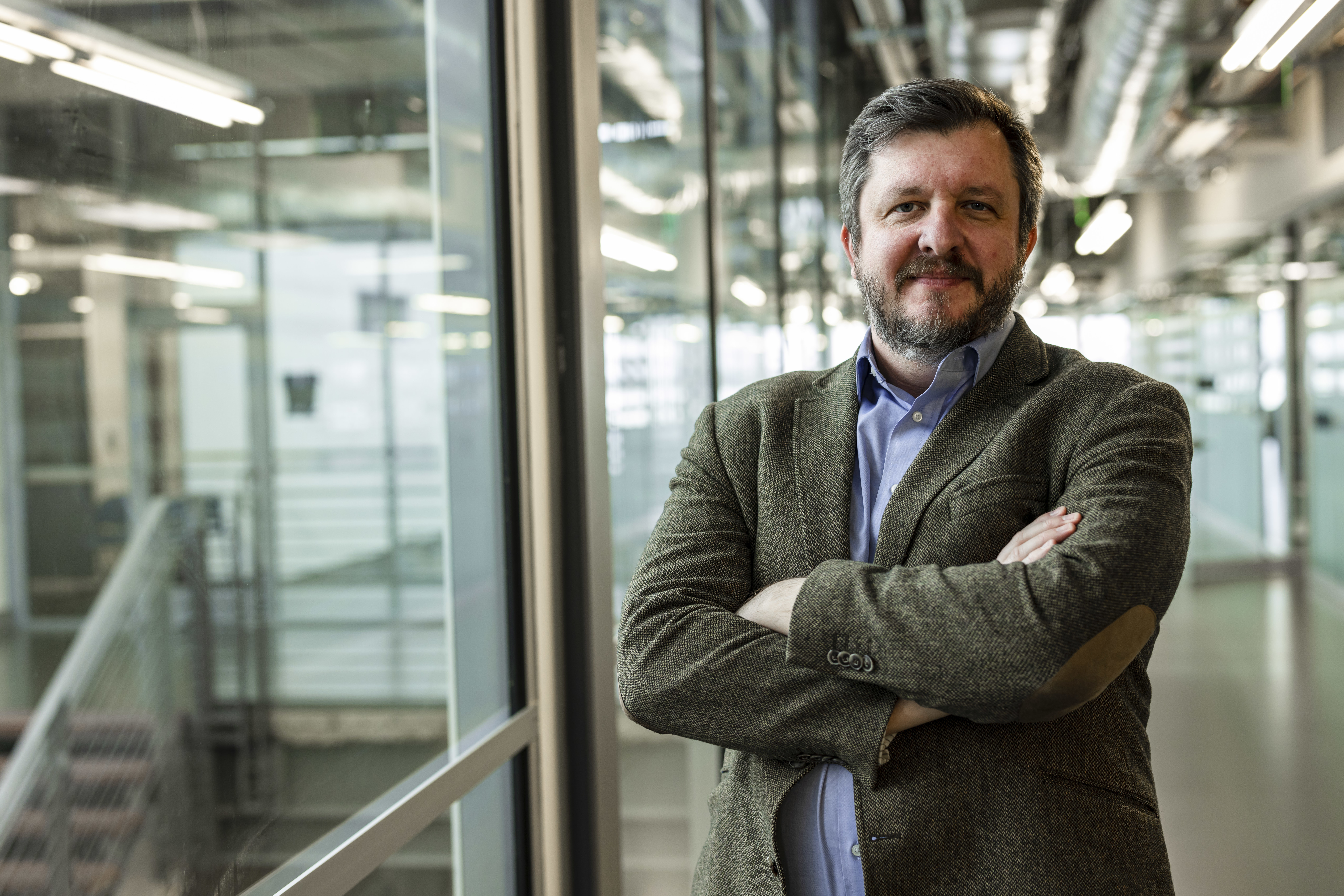Materials Researchers Work to Develop Sustainable In-Space Manufacturing as part of $3 Million NSF Grant
Baylor Mechanical Engineering professors partnering with the University of New Hampshire, Purdue University, NASA and Astroport

Contact: Lane Murphy, Baylor School of Engineering and Computer Science, Director of Marketing & Communications
Find this news release on our website: www.ecs.baylor.edu
WACO, Texas (Sept. 28, 2023) – Space junk may soon have a new lease on life, thanks to researchers from Baylor University’s School of Engineering and Computer Science (ECS) and other entities work together in a multidisciplinary, multi-institutional effort to develop sustainable in-space manufacturing processes. Researchers will explore ways to take fragments of debris floating around in space and repurpose them, along with using the moon’s surface materials, to create items necessary for possible human space habitation.
The National Science Foundation has awarded this project, called Understanding the Sustainability Framework for Convergent In-Space Manufacturing, almost $3 million to study different ways to use the recycled material to create sustainable in-space manufacturing (ISM) strategies.
“This project involves research faculty in Baylor’s Department of Mechanical Engineering alongside the University of New Hampshire, Purdue University, NASA, and Astroport,” said Trevor Fleck, Ph.D., project co-principal investigator (co-PI) and assistant professor of mechanical engineering at Baylor University. Working with these partners, Baylor will help develop new methods to push the future of sustainability in space exploration forward. Two more co-PIS from Baylor are Paul Allison, Ph.D., founding director of Baylor’s Point-of-Need Innovations Center and professor of mechanical engineering, and Brian Jordon, Ph.D., inaugural Kenneth and Celia Carlile Endowed Chair in Materials Science and professor of mechanical engineering.

Baylor’s Point of Need Innovations (PONI) Center, a new interdisciplinary research center with shared laboratory space inside the Baylor Research and Innovation Collaborative where a number of ECS faculty and students work, will focus on utilizing Friction Stir Additive Manufacturing (FSAM) methods to deposit aerospace grade aluminum, representative of scrap lunar landing space craft and moon buggy material available on the lunar surface, while incorporating lunar regolith (rock chips, mineral fragments, impact and volcanic glasses and a peculiar component only found on the Moon called agglutinates) to efficiently use the limited resources available on the lunar surface.
Baylor’s portion of the research will be paired with laser-based additive solutions (Purdue University) and robotic blacksmithing (University of New Hampshire) to move towards sustainable, cost-effective strategies to enable the future of space habitation.
“While the concept of space habitation and travel may seem distant, the development of sustainable manufacturing solutions, such as FSAM, will be necessary to enable the possibility of lunar habitation,” said Fleck. “Outside of the technology being developed, I am excited to work with Baylor's graduate and undergraduate students on this project, training the next generation of engineers that will deliver on the exciting future of space exploration.”

In a related release from University of New Hampshire, Weiwei Mo, PhD, principal investigator of the project, said, “The overarching goal of this project is to guide the development of a sustainable in-space industry that minimizes or reduces the impact of overusing our resources here on Earth.” Mo also emphasized that, “We are at the infancy of figuring how to create the logistics for in-space manufacturing but ultimately, the goal is to produce a space mission using materials and resources from space and to be able to leave the Earth’s resources for other much needed purposes.”
Baylor professors and researchers are eager to start working with the graduate and undergraduate students on this project.
The project will help educate the next great researchers in the Artemis generation focusing on sustainability and in-situ resource utilization at the point-of-need, and it also has applications on Earth for sustainable manufacturing as well as in Space, said Dr. Allison.
“Collaborations like this with our industry and NASA partners provide new and unique opportunities for our students to grow technically and professionally in advanced cutting-edge technologies we are pioneering at Baylor that have applications not only for in-space manufacturing, but for local advanced manufacturing or humanitarian assistance after a natural disaster when supply chains are disrupted,” Allison said.

The research will also fulfill a significant national goal to advance sustainable ISM in order to create critical emerging technologies. The first countries to develop this capability will stimulate spin-off technologies across a number of related fields and industries.
As of November 2022, the U.S. Space Surveillance Network reported 25,857 artificial objects in orbit above the Earth. More debris that is too small to be tracked – like paint flecks and solid rocket exhaust particles – exists in the near-Earth space environment. All are large enough to be a hazard for spacecrafts and can threaten astronauts traveling into space, the International Space Station, and unmanned robotic missions.
ABOUT THE SCHOOL OF ENGINEERING AND COMPUTER SCIENCE AT BAYLOR UNIVERSITY
Baylor’s School of Engineering and Computer Science (ECS) has been preparing its students for more than 25 years as innovators for worldwide impact by training graduates for professional practice and responsible leadership with a Christian view. Students can choose from majors including bioinformatics, computer science, electrical and computer engineering, general engineering, and mechanical engineering. ECS also offers graduate programs in all areas of study within the School. We stand out from the crowd through Christian commitment, a strong community, expert accessibility, leading practical experience and teamwork. Visit the ECS website to learn more and follow on Facebook or Instagram.
ABOUT BAYLOR UNIVERSITY
Baylor University is a private Christian University and a nationally ranked Research 1 institution. The University provides a vibrant campus community for more than 20,000 students by blending interdisciplinary research with an international reputation for educational excellence and a faculty commitment to teaching and scholarship. Chartered in 1845 by the Republic of Texas through the efforts of Baptist pioneers, Baylor is the oldest continually operating University in Texas. Located in Waco, Baylor welcomes students from all 50 states and more than 100 countries to study a broad range of degrees among its 12 nationally recognized academic divisions.